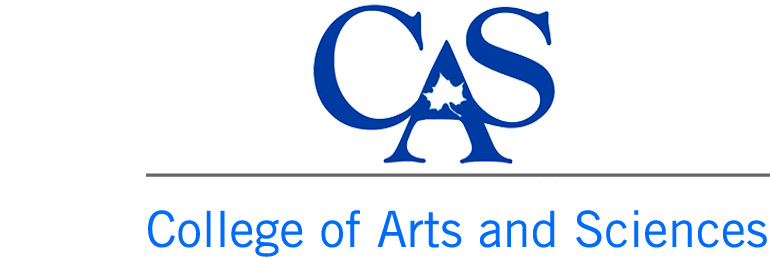Academic Advising
ACADEMIC ADVISING
The Department of Psychology is strongly committed to providing quality academic advising to its students. We strive to meet the needs of our students in the spirit of advising outlined by ISU's College of Arts and Sciences:
"Academic advising is an integral part of the educational process. The primary purpose of academic advising is to assist students in the development of meaningful educational plans compatible with the attainment of their life goals.
Effective advising is characterized by a good working relationship between the advisor and the student, which adapts to the experiences and changing needs of the students.
Quality advising also requires understanding, affirming, and respecting the individual differences within the University community. The advisor is expected to develop the knowledge, experience, and interest for successfully communicating with students in a genuine, sincere, accurate, and confidential manner.
Students are expected to understand University and program requirements and accept the responsibility for fulfilling them.
Together advisors and students are expected to maintain a professional and mutually respectful relationship as they review students’ progress toward the attainment of educational objectives."
WHAT CAN I EXPECT FROM ACADEMIC ADVISING?
Meetings with your academic advisor should provide you guidance in making your educational decisions. Advisors can do much more than assist you in selecting courses! Advisors can help you set and meet your educational and professional goals.
WHO IS MY ADVISOR?
Your academic advisor is listed at the top of your MySam. You can run your MySam by visiting the MyISU web site. You may also call the Department to find out which faculty member is your advisor.
How should I prepare for my advising appointment?
Review your MySam prior to your advising appointment and develop a list of classes that interest you for registration. Also, come prepared to discuss other aspects of your academic plan, such as career interests, graduate school, and internships. Under the heading “When does Priority Registration Occur” change the example dates to “Priority registration for a semester occurs in the prior term (e.g., registration for fall, 2018 will occur during spring, 2018).
WHEN DOES PRIORITY REGISTRATION OCCUR?
Priority registration is open to current students of ISU. Priority registration for a semester occurs (e.g., Fall 2007) during the preceding semester (e.g., Spring 2008). The priority registration schedule is available here. Once you have reached the Student Resources page, click on Registration and Scheduling for information relevant to scheduling classes.
The Office of Registration and Records maintains a web site that answers many commonly asked questions by ISU undergraduate students.
WHO NEEDS TO SEE THEIR ACADEMIC ADVISOR?
All students should regularly meet with their academic advisors! Advisors are here to help with more than selecting courses! We are here to assist you in developing and meeting your academic and career goals. Although many students equate PIN distribution with advising appointments, we hope that you utilize your advisor's expertise and experience for more than that!
WHAT IS MY PIN?
PINs are required for students to register for classes (as well as drop and add classes during the semester). Although all students were required to obtain PINs from their advisors in the past, ISU recently changed its policy. Now, students in good standing at the junior or senior level do not need PINs in order to register for classes. Although juniors and seniors do not need PINs, advisors in our Department still strongly encourage these students to meet with us! It is in these last two years of your time at ISU that you begin to think about career goals and/or graduate school--issues that are perfect to discuss with your advisor.
RESPONSIBILITIES OF THE ADVISOR
Our Department advisors take their responsibilities to students seriously. We strive to meet all the responsibilities of academic advisors set forth by the College of Arts and Sciences:
- Have a thorough understanding of the General Education Program, institutional requirements, course sequences and major and minor requirements, and, if appropriate, teacher education requirements of advisees.
- Know University and college/school policies and procedures.
- Be available to students by maintaining adequate office hours and appointment times that are reasonable to accommodate students’ needs.
- Be sensitive to the unique needs of individual students.
- Discuss linkages between academic preparation, the world of work, and life goals.
- Provide students with information about alternatives, limitations, and possible consequences of academic decisions.
- Monitor student advisees’ progress toward educational/career goals through the maintenance of accurate student records.
- Refer students to appropriate resources for needed assistance and serve as an ombudsperson (advocate) for advisees.
- Participate in professional development activities related to academic advisement.
- Exhibit the professional rapport necessary to maintain congenial relationships with advisees and for maintaining a positive, constructive attitude toward advising in general.
RESPONSIBILITIES OF THE STUDENT
Academic advisors in our Department also expect students to fulfill the following responsibilities outlined by the College of Arts and Sciences:
- Being knowledgeable about the academic policies, procedures, and requirements (including graduation requirements) of the University, the college or school, students’ program major(s), students’ program minor(s), and the General Education Program.
- Planning an academic program to meet degree requirements.
- Maintaining personal copies of a tentative degree plan, progress reports, General Education evaluations, transfer credit evaluations, and other important University documents.
- Knowing the name and office location of the academic advisor, and actively participating in the advising and scheduling process by consulting with that person.
- Taking advantage of the information and advice provided.
- Seeking and reviewing relevant information for decision-making.
- Developing social, academic, and career goals, and examining how these goals can affect life.
- Understanding that students must accept final responsibility for decisions regarding personal goals and educational goals, and for satisfying graduation requirements.
